Too Late to Say Goodbye Read online
Page 3
“He often took me along with him,” Head recalled. “When we went out together to pick up deceased people, death didn’t seem unnatural to me, and I think it helped me learn how to talk with those who have been recently bereaved.”
Head’s decision to go into law enforcement certainly came via a different route from most detectives’, but his ability to stay calm in the face of disaster was an important part of who he was.
It was difficult for Head to determine which close relatives of the Corbins had been notified, and where they were. Kelly Comeau, still in shock, hadn’t known how to reach Jenn Corbin’s parents. She thought she might have a phone number for Jenn’s younger sister, Heather. Neither she nor Steve knew where Bart was, but Kelly did manage to find a number for his mother, Connie Corbin, who lived in nearby Snellville. Steve called Bart Corbin’s mother at a quarter to nine that morning to tell her, “Jennifer’s been shot.”
“She was in complete tears,” he told police.
Connie Corbin called her younger son, Bobby, and told him what had happened. He said that Bart was with him, and that he would break the awful news to him. After that, it was hard to figure out who called whom to tell them that Jenn was dead. It was probably Bobby who called Heather, who lived with her husband, Doug Tierney, in a house they had recently bought in Dawsonville.
Heather answered their phone, and collapsed in tears, crying out “Jenn’s dead!” to Doug.
“We ran through the house, collecting our kids and headed for Jenn and Bart’s,” Doug said. “As soon as I got in the car, I called Bobby and asked ‘Where’s Bart? Is Bart with you?’ and he said, ‘Yes, he’s here—but he’s in the bathroom, really, really upset. Are you going over?’”
“Yeah, we are—we’re on our way,” Doug Tierney told Bobby Corbin. He asked Bobby if he and Bart would be there soon. But Bobby avoided answering.
“Bobby wouldn’t tell me, and I never talked to Bart,” Doug recalled. “Heather kept saying, ‘Go! Go! Go! We have to take care of the boys!’ And we did. Heather knew Kelly Comeau had them for the moment but they needed to have their family there.”
“Are you on your way?” Doug asked Bobby Corbin again.
There was no response.
Doug couldn’t believe it. He turned to Heather and said, “I don’t know if they’re going over or not.”
No one answered Doug Tierney’s subsequent phone calls to Connie Corbin’s house or to Bobby’s house. Maybe they had left to go to Buford. Surely Bart would realize that Dalton and Dillon needed their father, and needed him fast.
Heather called her parents in Lawrenceville and told them what had happened. When Max and Narda Barber learned that they had lost their daughter, their first thoughts were also about their grandsons. Who was taking care of them? Had the boys been injured, too? Jenn’s parents were on automatic pilot; nothing could have prepared them for the news that she was dead.
What could have happened? Random thoughts darted through their minds as they fought down panic and disbelief. Max and Narda got in their car and headed toward Buford, where their precious Jenn lay dead. Max drove as fast as he safely could to get to Bogan Gates Drive.
Still, no one knew for sure where Bart Corbin was. Surely he and his brother Bobby would be arriving at any moment.
The Corbin family had gathered at Connie’s house in Snellville. Asked later by investigators why they hadn’t gone to Buford to check on Dalton and Dillon, Bart’s mother said that Kelly Comeau kept assuring her that the Barbers and the Tierneys were on their way to look after the boys. “It was closer for them,” Connie said later.
But it wasn’t a long way for any of them! Maybe twenty miles from Connie’s place in Snellville, twenty-five from Heather and Doug’s in Dawsonville, and about sixteen from Max and Narda’s place in Lawrenceville.
Detectives at the scene of Jenn Corbin’s death kept expecting her widower to drive up, wanting to learn more about what had happened, and, almost certainly, anxious to comfort his small sons. They assumed he would be crying and upset, but like most fathers, would pull himself together enough to race to his children in a time of crisis.
But Bart Corbin apparently could not. He may have been reluctant to encounter his in-laws because their relationship, once loving, had been strained in recent weeks. He may have been totally grief-stricken to hear that his wife was dead, too distressed, as his brother said, to know what to do.
Max Barber parked in the driveway of his dead daughter’s home for a very long time, waiting to talk to his son-in-law. His daughter Heather was afraid he was so grief-stricken that he was going to have a heart attack—but he wouldn’t leave.
Heather was also upset as she called 911, determined to get word to Sheriff “Butch” Conway, who was a family friend, that she believed Bart had murdered Jennifer.
“The woman who answered at 911 was already convinced that Jenn had killed herself,” Heather recalled. “I kept trying to tell her that Bart did it,” and she kept saying to me, ‘But, Ma’am, you don’t understand what happened.’
“And I knew I did understand and she didn’t.”
They were all in deep and chilling shock; no one could be held accountable for what they thought and said at such a moment.
MARCUS HEAD HAD DONE a “cursory survey” of the shooting scene. He studied the woman lying on the bed, the dried blood beneath her nostrils and on the right rear of her head, the gun tucked beneath the comforter, and the many-paged document beneath her shoulder. He could make out enough of the printing to see that they were divorce papers from her husband. Given the placement of the gun and the wound behind her right ear, he jotted down notes: “Due to the position of the victim’s hands and the revolver being in a place that is contrary to gravity…we decided to treat the matter as a suspicious death.”
It was a very broad category. It could mean anything. Head was just stepping into a case that would dominate much of his life for almost two years.
At this point, Max Barber approached Marcus Head. Distraught as he was, Barber wanted Head to understand that Jenn and her husband Bart had been having marital problems. “They had a fight at Thanksgiving,” Barber said. “He hit her in the face. There was another incident three or four days ago. Jenn had to call the police on Bart. He stole her journal or something.”
“Do you know if either your daughter or Dr. Corbin own a handgun?” Marcus Head asked.
“I don’t know of any,” Max Barber said, “but Bart had a shotgun. Jenn was worried because he took it out of their house on December 1.”
The two men—a bereaved father and a detective who had just begun an investigation—agreed to talk in more detail later in the day.
While detectives continued to work the crime scene, Gwinnett County Deputy Sheriff M. Brooks drove up to the Corbins’ house. He was surprised to see all the police activity there. Brooks told Marcus Head that he was there to legally serve Jennifer Corbin with the divorce papers her husband had filed on November 29. Told that she had died of a gunshot wound a few hours before, Brooks offered to make copies of the no-longer-necessary divorce papers and give a set to Marcus Head. The copy that was still beneath her shoulder was stained with blood, and would be retained as evidence.
Head talked more with Jenn’s stunned family. The thought of Jenn being gone was impossible for them to accept. Not Jenn, who had always embraced life with enthusiasm and optimism, who had never hurt a living thing.
Although he doubted it, it was still possible that Jenn Corbin had committed suicide, and Marcus Head tactfully questioned her family about her state of mind. Had she been disturbed lately, depressed? Maybe enough to take her own life?
They stared back at the detective, shaking their heads. Suicide? Jenn a suicide?
Never. Never. Never.
Jenn’s parents and her sisters were adamant. “First of all,” Narda said, “she would never have left the boys. She would have gone through hell, but she would never have left her boys behind.”
He
ather was just as sure that her sister would not have killed herself. “There was no letter to the boys, was there?” she asked, and then continued without getting an answer. “She wouldn’t have left without saying goodbye to them.”
“She would never leave them at all. Not voluntarily,” Max Barber said flatly. “She did not commit suicide.”
Head scanned the divorce petition. It was a Gwinnett County Superior Court Civil Action warrant: #04-A-13086-5, dated November 29, and filed on November 30,2004. And there was no question who had filed it: Dr. Barton T. Corbin. Apparently, someone had given Jennifer Corbin a copy of it before she was officially served.
Would the news that her husband wanted to divorce her have been enough to make her commit suicide? Although Head hated to question her family further when they were trying to cope with the reality of her sudden death, he asked again about her frame of mind. Had she made any suicidal threats, even obliquely?
No! Max Barber insisted. If either Bart or Jenn had truly wanted a divorce, it would have been Jenn. Her father said that they all knew Jenn and Bart were having a rough patch in their marriage. Jenn was usually the peace-maker, knowing what to do to calm Bart down or cheer him up. Until recently, she had managed to hide her problems from her family. But in the preceding eight days—ever since Thanksgiving—even she had trouble pretending there was nothing wrong. She seemed to them alternately angry and frightened as she dealt with Bart. Yes, she was miserable, caught inside the marriage.
“As I said,” Barber repeated, “Jenni even called the police for help a few days ago.”
“Tell me more about that. Why did that happen?” Head asked.
“He was acting crazy.”
“Bart ruined the Thanksgiving because he was in such a bad mood,” Max said. “He was either sulking or angry about something all day long. And it got worse after that.”
From Thanksgiving to December 4 was only nine days, and Head had been a cop long enough to know that more family fights erupt around the holidays than at any other time of the year. But filing for divorce was certainly a radical position for the dentist to have taken. An eight-year marriage wouldn’t disintegrate in eight days! There had to be something far deeper, simmering for months or even years. Either Jennifer Corbin had been hiding a great deal from her family, or something catastrophic had happened suddenly, bringing about a sea change in her relationship with her husband.
But Head realized that this wasn’t the time to question Jenn’s grief-stricken survivors in depth. They had lapsed back into such deep shock that they could barely speak.
All that Head and the other investigators knew for sure at this point was that Jennifer Corbin was dead. Her husband had not shown up at their home, and no one seemed to know where he was. If Bart Corbin had been trying to prove some kind of point by seeking a divorce so precipitately—perhaps to shock his wife into taking him back—he would be appalled to learn that she had killed herself.
Or that someone had murdered her while he wasn’t there to protect her—or their small sons.
Steve Comeau came across the street and told Marcus Head that Bobby Corbin had called him to say that Bart was still at Bobby’s house. Comeau gave the detective Bobby’s phone number.
Head immediately called Bobby and determined that both he and Bart had been informed of Jennifer Corbin’s death. Head asked to speak with the widower, hoping to get some information from him that might explain what had happened.
“He can’t talk right now,” Bobby Corbin said. “He’s very, very, upset. But we’ll be coming over there soon.”
While he waited for Bobby and Bart to arrive, Marcus Head spoke very briefly to Dalton and Dillon Corbin, who were still at the Comeaus’ house. Dalton told him he had gone to wake up his mother to fix breakfast and he had seen blood coming from her mouth. He had also seen the gun close to her hand.
“I tried to call 911 from our phone,” he said, “but it didn’t work. So I ran over to Kelly and Steve’s to get help. My father shot my mother.”
Head looked up startled. Had he heard the little boy right? Dalton had said it almost matter-of-factly, as if this was a fact that everyone knew. He would have to be questioned carefully before his memory grew contaminated by remarks he might hear around him. Dillon didn’t appear to know what had happened. But Dillon was only four or five.
As much as Head hated to do it, he knew that it was imperative to have Jennifer Corbin’s small sons interviewed as soon as possible. They had been alone in the house with their mother and they had found her body. Children often have trouble distinguishing fact and fantasy, particularly when they have undergone a profound shock. The more time that passed before they were questioned, the more likely they would be to slip away from the awful reality of what they had seen.
Corporal Curtis L. Clemmons, a senior member of the Special Victims Unit in the Gwinnett County Police Department, was especially well trained in questioning children. A father himself, Clemmons was a big bear of a man with a gentle voice. He sighed as he was notified of the death. Head asked him to talk with Dalton and Dillon Corbin.
The little boys would leave Bogan Gates Drive soon with their Grandpa Max, but Barber promised to bring them to headquarters later in the day so Clemmons could talk to them. It had to be today; like Head, Clemmons knew that children’s memories are so fragile that they can blow apart like dandelion fluff in a short amount of time.
It was difficult for Jenn’s family to realize that her lovely home was now a crime scene, cordoned off from everyone but the investigators. The Barbers and Tierneys were told they could not go into the house, not even to get more clothing for the boys. That seemed wrong, too; everything seemed wrong to them. They were both grief-stricken and angry, but they knew they had to get Dalton and Dillon away from there.
As the Barber family drove away with the boys, they were unaware—everyone was unaware—how long it would take to find the answers to what had happened here…and why.
THERE WAS STILL NO SIGN of Barton Corbin.
Marcus Head glanced at his watch—and he placed another call to Corbin’s brother to see if they were on their way to meet with him. He hadn’t talked to Bobby Corbin for half an hour.
Bobby Corbin wasn’t as cooperative this time. He was reluctant now to bring Bart to Bogan Gates Drive, saying that Jenn’s relatives had been calling him, claiming that Bart had killed her. Perhaps they had, Head thought; emotions were running high. The victim’s parents and sister had certainly been angry and ravaged enough with grief to make accusations—particularly since it appeared that the dentist and his wife had been having violent arguments.
“I haven’t drawn any conclusions,” Head said quietly,
“or formed any opinions. But I do need information from Dr. Corbin so I can conduct my investigation.”
“Well, I’m concerned about my brother,” Bobby said.
“I’ll call you back soon.”
Marcus Head talked further with Steve Comeau, asking him what he had observed in the early morning hours of this bleak day. Comeau said he had arrived home about a quarter to two, and spent a short time in his garage, unloading tools from his truck. It was then that he had heard a vehicle coming down the street.
“This would have been about what time?” Head asked.
“Maybe about two A.M—I’d been home about fifteen minutes when I heard it. I recognized it as the sound of Bart’s truck.”
Comeau said that he hadn’t really paid much attention, since he was so used to hearing Bart come down Bogan Gates Drive and turn into his driveway.
“Did you actually see it—look over there to see if it was Dr. Corbin?”
Comeau shook his head. “I didn’t look.”
And he couldn’t recall if he’d heard one of the truck’s doors open and close—or two. As close as he could remember, the truck he believed was Corbin’s had stayed only “ten or fifteen minutes” before he heard it leave again, roaring up the street.
“The truck’s en
gine noises made it sound like the driver was in a hurry.”
As far as his neighbors knew, sometime in the past few weeks, Bart had moved out of the master bedroom he had shared with Jenn. Jenn had come and gone, sometimes staying at Heather’s house. Things were up in the air in her marriage, but the Comeaus said they had still felt that the couple might simply need some time apart to sort out their feelings. And they probably needed to see a marriage counselor. Jenn would have had them go sooner, but Bart had told Kelly Comeau that he didn’t want to talk about his private life with any counselor.
Slowly now, the awful, immutable truth had begun to sink in with the Comeaus. There was no longer any reason to sort out feelings or to see a marriage counselor. There was nothing left of the marriage that had begun with so much hope and happiness. And there was nothing left of Jenn; her essence, her soul, no longer warmed their lives. Ironically, it was always Jenn who brought order out of chaos, who solved problems and promised that “everything will be OK”
Now Jenn Corbin lay dead across the street; her sons Dalton and Dillon had left, looking lost and confused, occasionally crying inconsolably: and no one knew where their father was.
None of Jenn’s family and close friends would budge on their insistence that she would not have chosen to end her life. Those who loved her kept repeating it like a mantra: “Jenn would never, ever, kill herself,” Heather said. “She wouldn’t have done that to the boys, knowing how much they needed her. She would never leave her sons. Never. Even if she was depressed and we didn’t know it, she wouldn’t shoot herself, knowing that Dalton or Dillon would be the ones to discover her body.
“She loved them too much.”
CHAPTER THREE
DECEMBER 4, 2004
ONCE THE SEARCH WARRANT arrived, the CSI team who waited on Bogan Gates Drive moved through the silent brick home, gathering anything that looked as if it might be evidence. Crime Scene Technician Amber Roessler and Forensic Investigator Ray Rawlins photographed the bedroom and Jenn Corbin’s body, while other technicians took more photos of the house, videotaped the scene, and took measurements that would allow them to triangulate the position of vital elements later. Whatever was there now would never be exactly the same again. It was absolutely essential that they photograph the master bedroom and the entire interior and exterior of the Corbin home. They would bag even the most unlikely items into a chain of evidence, labeling and sealing everything separately so it would all be sacrosanct, no matter how many hands the possible clues passed through. And each person who touched them would initial them.

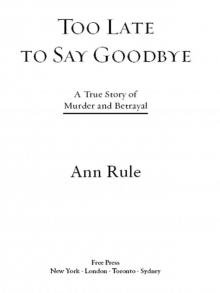 Too Late to Say Goodbye: A True Story of Murder and Betrayal
Too Late to Say Goodbye: A True Story of Murder and Betrayal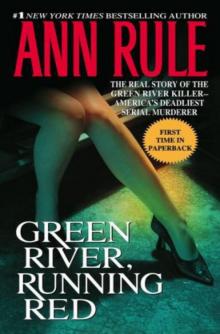 Green River, Running Red
Green River, Running Red Bitter Harvest
Bitter Harvest Dead by Sunset: Perfect Husband, Perfect Killer?
Dead by Sunset: Perfect Husband, Perfect Killer?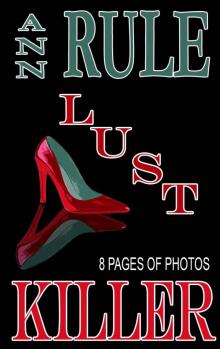 Lust Killer
Lust Killer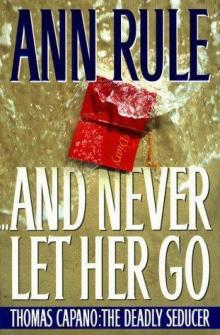 And Never Let Her Go: Thomas Capano: The Deadly Seducer
And Never Let Her Go: Thomas Capano: The Deadly Seducer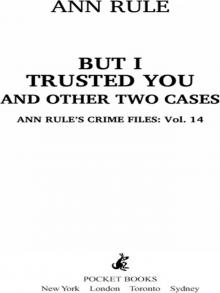 But I Trusted You and Other True Cases
But I Trusted You and Other True Cases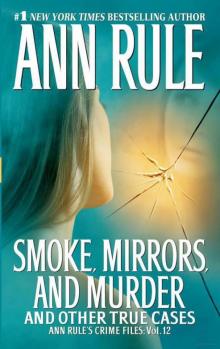 Smoke, Mirrors, and Murder and Other True Cases
Smoke, Mirrors, and Murder and Other True Cases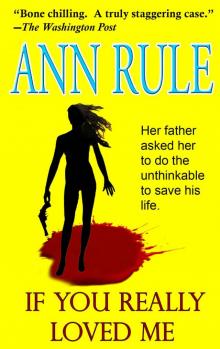 If You Really Loved Me
If You Really Loved Me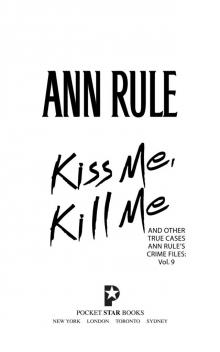 Kiss Me, Kill Me and Other True Cases
Kiss Me, Kill Me and Other True Cases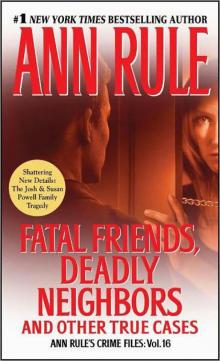 Fatal Friends, Deadly Neighbors and Other True Cases
Fatal Friends, Deadly Neighbors and Other True Cases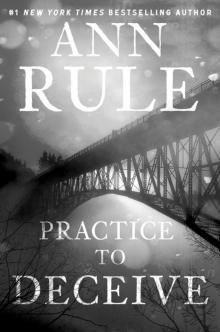 Practice to Deceive
Practice to Deceive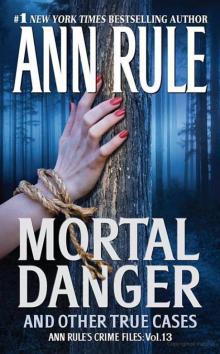 Mortal Danger and Other True Cases
Mortal Danger and Other True Cases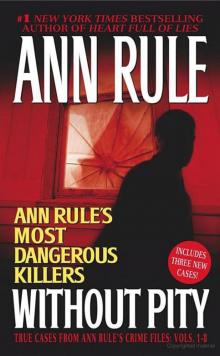 Without Pity: Ann Rule's Most Dangerous Killers
Without Pity: Ann Rule's Most Dangerous Killers Everything She Ever Wanted
Everything She Ever Wanted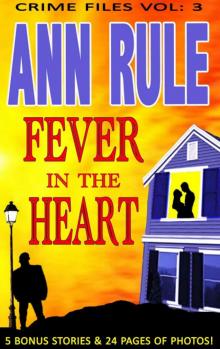 A Fever in the Heart and Other True Cases
A Fever in the Heart and Other True Cases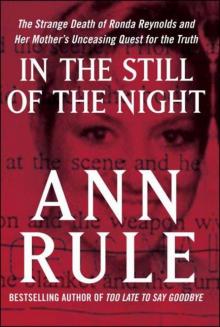 In the Still of the Night
In the Still of the Night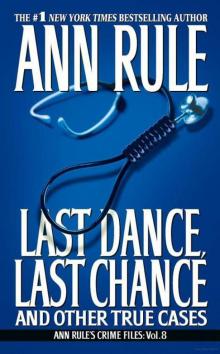 LAST DANCE, LAST CHANCE - and Other True Cases
LAST DANCE, LAST CHANCE - and Other True Cases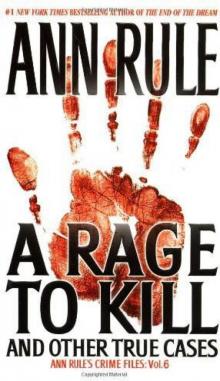 A Rage to Kill
A Rage to Kill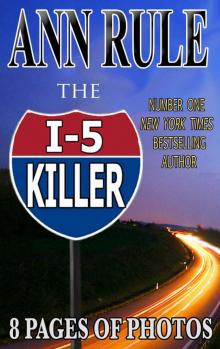 The I-5 Killer
The I-5 Killer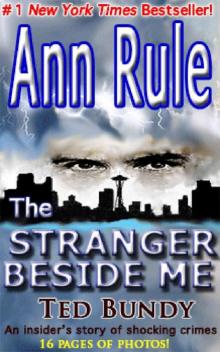 The Stranger Beside Me
The Stranger Beside Me Everything She Ever Wanted: A True Story of Obsessive Love, Murder, and Betrayal
Everything She Ever Wanted: A True Story of Obsessive Love, Murder, and Betrayal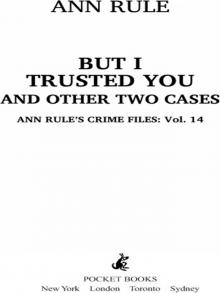 But I Trusted You
But I Trusted You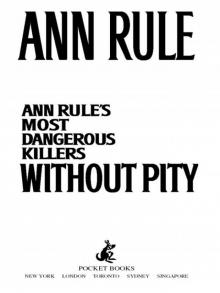 Without Pity
Without Pity Kiss Me, Kill Me
Kiss Me, Kill Me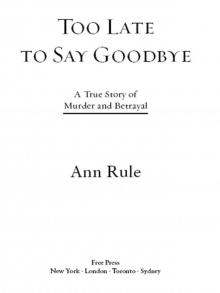 Too Late to Say Goodbye
Too Late to Say Goodbye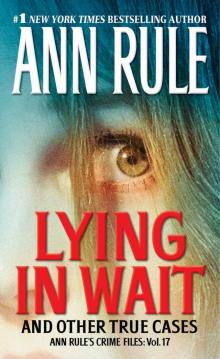 Lying in Wait
Lying in Wait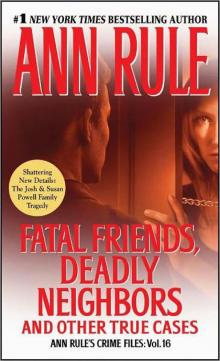 Fatal Friends, Deadly Neighbors
Fatal Friends, Deadly Neighbors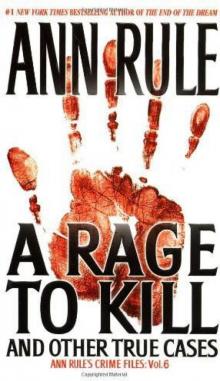 A Rage to Kill: And Other True Cases
A Rage to Kill: And Other True Cases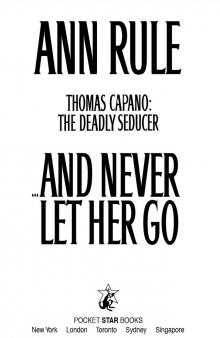 And Never Let Her Go
And Never Let Her Go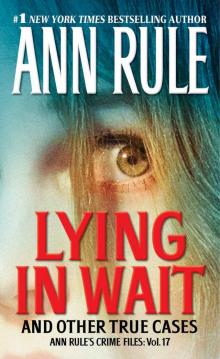 Lying in Wait Ann Rule's Crime Files Vol.17
Lying in Wait Ann Rule's Crime Files Vol.17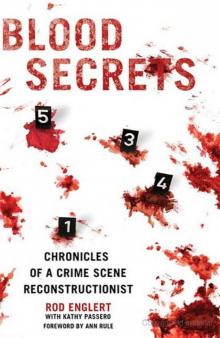 Blood Secrets: Chronicles of a Crime Scene Reconstructionist
Blood Secrets: Chronicles of a Crime Scene Reconstructionist No Regrets
No Regrets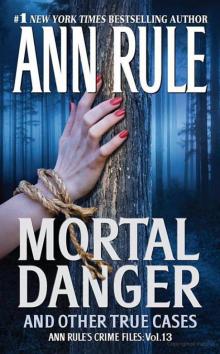 Mortal Danger
Mortal Danger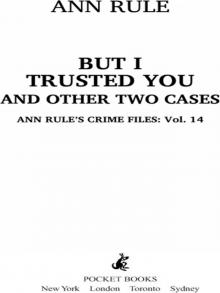 But I Trusted You: Ann Rule's Crime Files #14
But I Trusted You: Ann Rule's Crime Files #14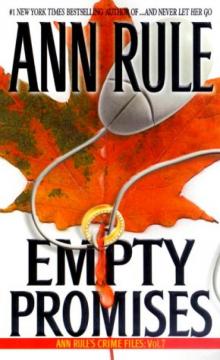 Empty Promises
Empty Promises Dead by Sunset
Dead by Sunset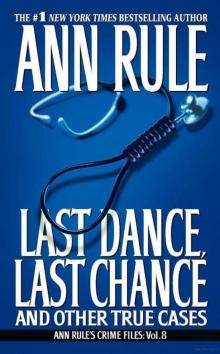 Last Dance, Last Chance
Last Dance, Last Chance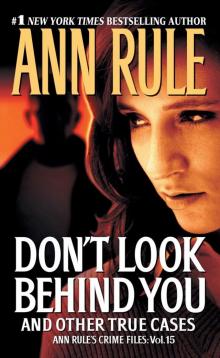 Don't Look Behind You
Don't Look Behind You